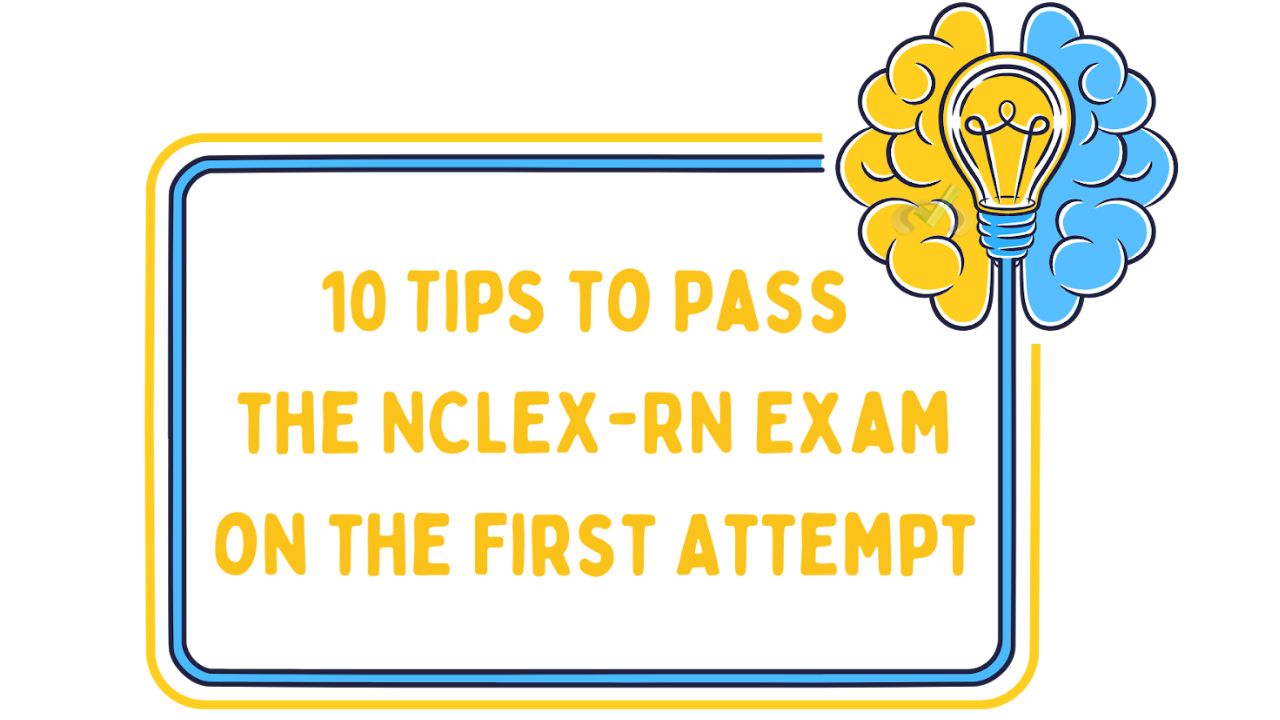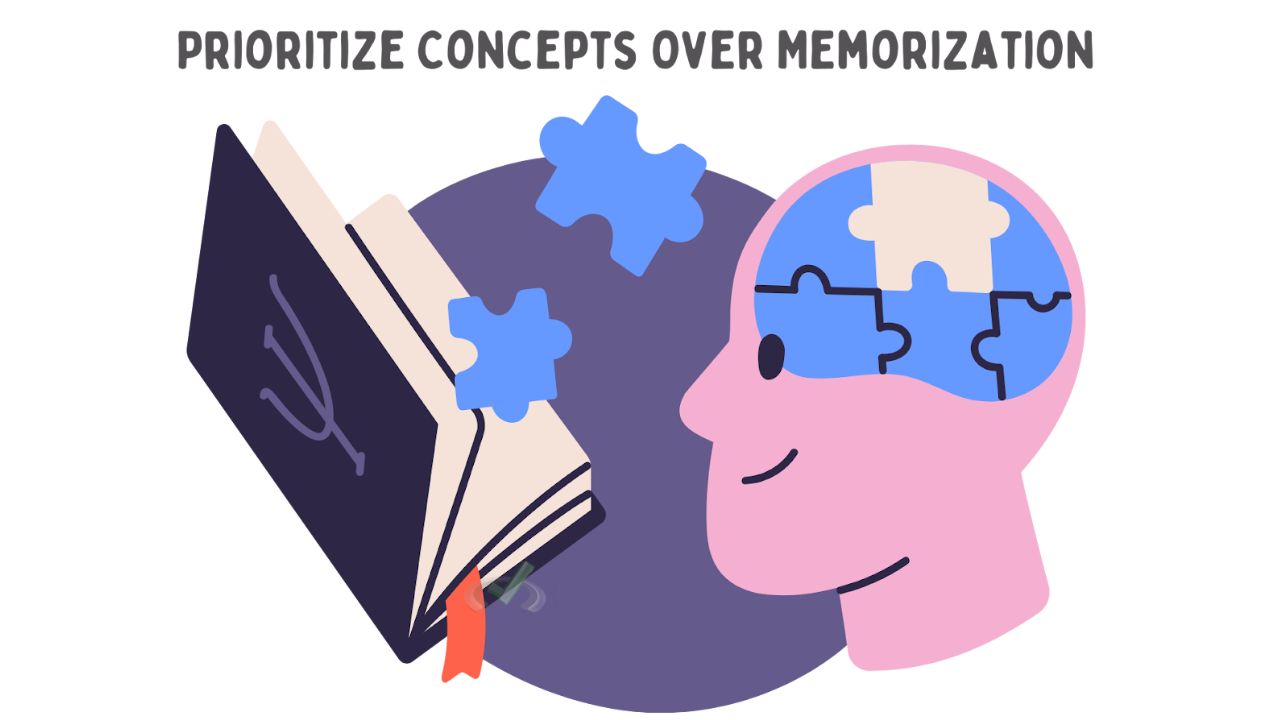
Here’s something that might make your stomach flip: about 12-15% of nursing graduates don’t pass the NCLEX-RN on their first try. But hey, let’s not let that rattle you. If you prepare the right way, passing the NCLEX-RN on your first attempt isn’t some impossible feat.
Believe me, it all comes down to choosing the appropriate strategy. I'm here to give you some advice on how to pass the NCLEX RN the first time without becoming a zombie from lack of sleep. What's a bit unusual about this exam? It is flexible.
The exam adapts to your responses; the more successfully you respond, the more difficult the questions become. But you know what? If the questions are tough, you’re probably on the right track. Ready to dive into these tips? Let’s crush this thing together.
1. Understanding the Beast: What’s Really on the NCLEX-RN?

Okay, before you panic, let’s break down what the NCLEX-RN actually tests you on. It’s not some memory challenge designed to trip you up with obscure facts. The NCLEX wants to see if you can think like a nurse.
They throw real-life scenarios your way and see how you handle them. What’s cool (and also terrifying) is that the test could shut off after 85 questions, or it could keep going until you’ve hit around 150.
It all depends on how well you’re doing. If you get more hard questions than easy ones, take it as a compliment! Here’s what you can expect topic-wise:
It’s a mixed bag of nursing scenarios. But don’t worry—we’re going to help you tackle this with ease.
2. Prioritize Concepts Over Memorization
The problem is that if you're trying to memorize every test result or drug combination, you're not doing it correctly. The purpose of the NCLEX-RN is not to test your memorization skills but to assist you grasp the big picture and know what to do in emergency situations.
Concentrate on understanding the main ideas rather than overloading your head with unimportant information. Consider how illnesses impact the body and the rationale behind specific therapies. You will be successful as a nurse if you can understand why you are doing certain things.
Crucial actions:
3. Practice, Practice, Practice (But Don’t Overdo It)
You've heard the saying "practice makes perfect" a thousand times. Here's the problem, though: practice wisely rather than constantly. You might practice answering hundreds of questions every day, but it won't help if you don't take the time to learn from your errors. It's more about strategy than physical power.
You should not simply glance at the answers when you are practicing. Examine the justifications and determine why the correct response is correct and the others are incorrect. This has a significant impact.
Here's how to make it work:
According to a study in Nursing Education Perspectives, students who practiced with at least 100 questions a day for a couple of months were way more likely to pass on their first try. Consistency is key here!
4. Time Management: Don’t Study Like a Zombie

We’ve all got that one friend who stayed up until 3 AM cramming for every exam, fueled by energy drinks and sheer panic. Don’t be that person. When it comes to the NCLEX-RN, marathon study sessions won’t help you pass it on your first attempt.
In fact, you’re more likely to burn out if you overdo it. The trick is to study in chunks. Your brain can only process so much information at once, so give it time to relax, breathe, and come back renewed.
Approach:
Keep in mind that the human brain has limitations. You must strike a balance between being mentally exhausted and being ready.
5. Use the Right Study Resources
You know what’s worse than studying for hours? Studying the wrong stuff. Not all NCLEX study guides are created equal. You need materials that are updated, accurate, and actually reflect what the test will look like.
Also, your study guide needs to explain why an answer is correct—not just tell you which one to pick. Whether you’re more of an online learner or a good old-fashioned textbook reader, pick tools that push you to think critically, not just memorize. Here are some fan-favorites to consider.
Top study resources:
Different tools work for different learners, so choose what fits your style. Just make sure it’s thorough and challenging.
6. Master Test-Taking Strategies
Alright, so you’ve studied hard, but when the NCLEX throws a curveball your way, what do you do? Test-taking techniques, buddy. That's how you deal with those "What the hell is this asking?" inquiries.
First, understand that you are not the only one who has to deal with some genuinely strange inquiries. They are received by all. The secret is to remain composed and rationally dissect the question using your knowledge.
Rapid tactics:
Most importantly, trust your instincts. You’ve studied for this!
7. Stay Calm and Practice Self-Care

The NCLEX-RN is definitely a big deal, but if you’re a ball of stress on test day, it’s going to mess with your brainpower. You need to stay calm to perform your best. Easier said than done, right? Well, self-care plays a massive role in keeping your cool.
Simple ways to de-stress:
And on test day, eat something light but energizing. You need to feel good to think straight!
8. Understand the NCLEX Scoring
Here’s a big stress reliever: the NCLEX-RN doesn’t care how many questions you get right. It cares how you answer them. The exam measures your ability to handle increasingly difficult questions.
So, if it feels like the questions are getting tougher, that’s actually a good sign! Basically, the test is looking for consistency in your ability to answer medium-to-hard questions. If you’re doing well, it’ll keep going until it’s sure you’ve got what it takes.
How the NCLEX scores:
Knowing this takes a lot of pressure off. It’s not about perfection, just demonstrating competence.
9. Plan Your Test Day in Advance
You don’t want to be that person frantically running into the test center because you couldn’t find parking. The night before your exam, make sure you’ve got everything organized.
Set out your clothes, double-check your paperwork, and plan your route. Simple stuff, but it makes a huge difference.
Test day checklist:
Plan to get there at least 30 minutes early—just in case.
10. Don’t Rush It—Trust Your Prep
When you finally sit down to take the NCLEX-RN, don’t be tempted to rush through it. This isn’t a race. Read each question slowly, consider it thoroughly, and then boldly respond.
The purpose of the test is to gauge your ability to think, not how quickly you can complete it. Pace yourself and have faith in your preparedness. Now that you've done the work, concentrate on answering each question as it arises.
Remember this:
After the Test: What Happens Next?
Congrats, you’ve made it through the NCLEX-RN! Now comes the hard part: waiting for your results. It can take up to 48 hours (sometimes more) for your official results to show up.
In the meantime, relax. There’s nothing more to do except treat yourself to some well-deserved downtime. It's time to start planning for your nursing future after your results are in and you receive that huge "pass." This is only the beginning; you deserve it.
In Conclusion, You Are Capable!

Although passing the NCLEX-RN on your first attempt may seem like a difficult undertaking, it is completely achievable with the correct techniques. Stick to these tips to pass NCLEX RN first time, trust your prep, and walk into that testing center knowing you’ve got what it takes. The journey to becoming a registered nurse is this close, so go crush it!
